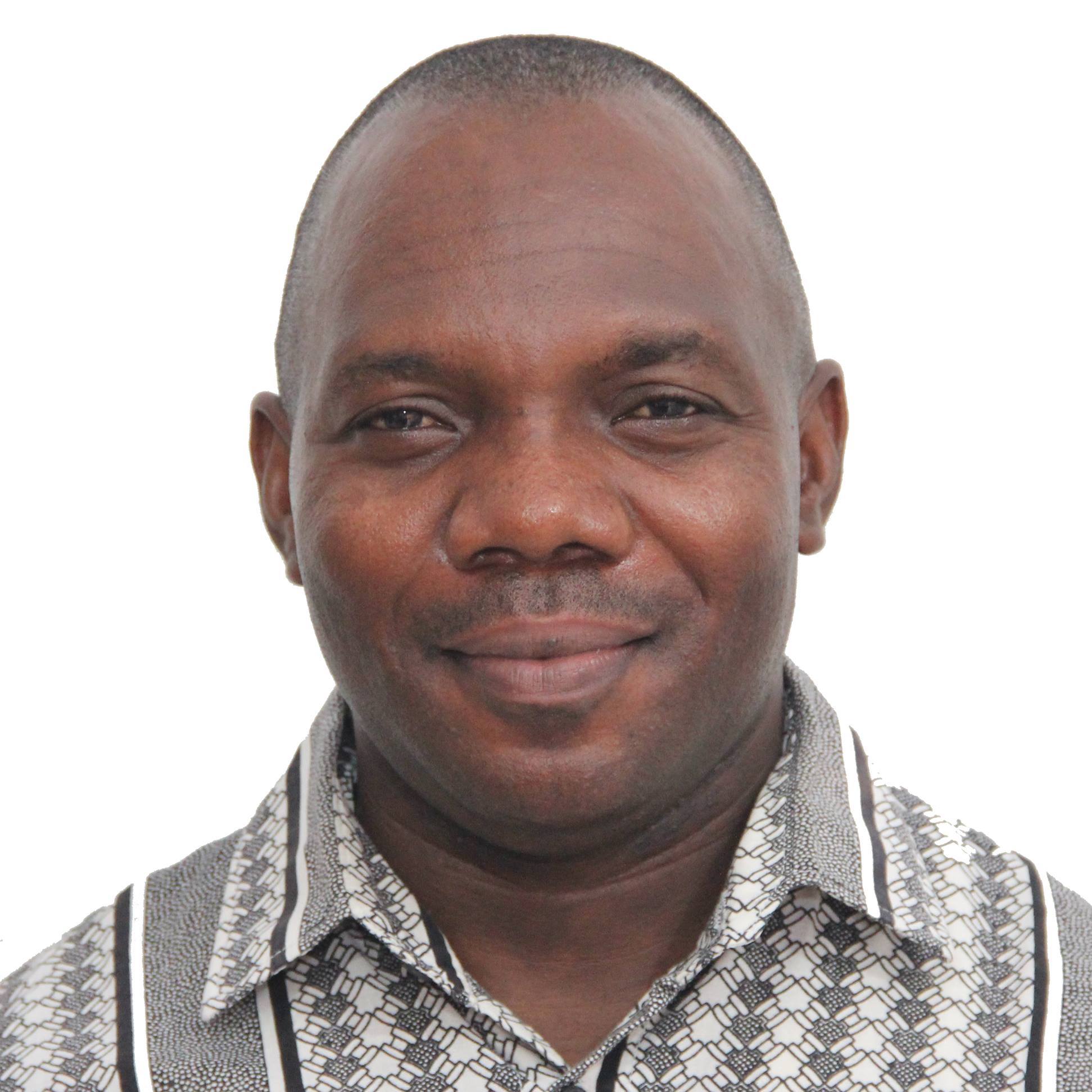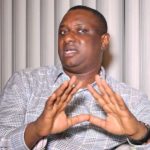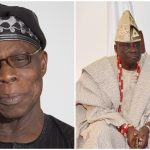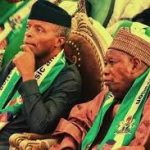
“As the year comes to a close, Nigeria is facing numerous challenges that are having significant impacts on the lives of its citizens. One of the most pressing issues is the high inflation rate of 28 percent, which is making it difficult for many people to afford necessities. Additionally, insecurity remains a significant concern, with frequent reports of violence and conflict in various parts of the country. Furthermore, Nigerians are grappling with high living costs, poverty, inadequate infrastructure, poor governance, and unrest in critical social sectors like education and health. Despite commitments by the current political leaders to address these issues, many Nigerians are still leaving the country in search of better opportunities abroad, despite President Bola Tinubu’s ‘Renewed Hope Agenda.’ It’s clear that the world desperately needs good governance, equity, justice, and fair play in order to achieve lasting peace.”
Mohbad’s demise
As we commence part II of the review, we begin with a heartbreaking story. This story is about an incident that shook the nation to its core and left many people devastated. On 12 September 2023, Mohbad, whose real name is Ilerioluwa Aloba, died in Lagos at the age of 27. Investigations into his death pointed to the nurse who treated the late singer before his death. The nurse was invited to treat Aloba at his Lagos residence, where she administered three different injections, which are believed to have caused the chain of reactions that directly resulted in the death of the singer. The nurse was later arrested and found to be an unlicensed nurse. Hundreds of fans held protests and candlelight vigils in various Nigerian cities to honor Mohbad. Allegations of harassment and bullying from his former music label sparked outrage. His death also brought the treatment of musicians by Nigerian labels into sharper focus, as well as the relationship between record labels and the music industry. Mohbad was hurriedly buried by his family the day after he died, fueling widespread anger and suspicions about how he died. Outrage for his death was primarily directed at Naira Marley, the boss of Mohbad’s former label. But Marley vehemently denied harassing the late star. On his Instagram page, he said that he was “shattered” by the news of Mohbad’s death and called for fans to help find information on his death. Days after the allegation, some radio stations in the country stopped playing Marley’s songs. More protests and vigils were held across the country. After days of protest from fans, social media influencers, radio entertainers, and celebrities, the Lagos Police Command launched an investigation into the mysterious death of the artist. On 19 September 2023, the state Governor, Babajide Sanwo-Olu, invited the Department of State Services (DSS) to join the ongoing investigation. The Lagos State Police Command exhumed Mohbad’s body on 21 September 2023 for autopsy. On 22 September 2023, the Lagos State Police Public Relations Officer, Benjamin Hundeyin, in an interview with Punch newspapers, confirmed Mohbad died at a hospital in circumstances that occurred as a result of an injection administered by the nurse. On 24 September 2023, PRO Benjamin Hundeyin issued a stern warning against turning Mohbad’s death into a media trial. Meanwhile, the State Commissioner of Police said everybody linked to the death of Mohbad will be identified, and they will be brought to establish their level of involvement. To this day, Nigerians are still awaiting answers.
The BBN controversy
In September, there was a significant uproar about the allegations made by Big Brother Naija’s housemate Venita Akpofure against the Tiv people. The statement made by her involved a severe and derogatory accusation against the Tiv men in which they were falsely accused of offering their wives as a means of entertainment. Such an accusation is not only disrespectful but also defamatory. It has the potential to cause emotional distress and harm to the reputation of the Tiv people. Sadly, this is not the first time that such claims have been made against the Tiv people. The Tiv people are known for their genuine hospitality, which has appeared unfamiliar to other ethnic groups. This has made the Tiv people a target of unfair criticism regarding their marital practices. In fact, prejudice has fueled negative media coverage of the Tiv people’s compassion to the extent that platforms like Big Brother Nigeria’s All Stars edition would promote divisive sentiments like this. It was disappointing that the producers of the show did not caution Ms. Akpofure for her insensitive comments about the Tiv people. The Tiv community, which comprises approximately 7 million people in a country with over 300 ethnic groups, did not take appropriate action after the show ended. The Tiv people are known for their warm and hospitable nature, but unfortunately, they have been subjected to ridicule and negative stereotypes. Despite their rich cultural heritage and significant contributions to Nigerian society, they have often been unfairly portrayed in the media and popular culture, leading to misconceptions and prejudices. It is essential to recognize and challenge these harmful stereotypes to promote a more accurate and respectful understanding of the Tiv people and their culture. While our ancestors may not have addressed this issue in the past, some people felt it was time to speak out against these unfair accusations and demand respect for the Tiv community. It is essential to recognize the Tiv people’s unique culture, customs, and practices and not generalize them based on false allegations. The Tiv people are an integral part of Nigeria’s diverse culture, and it’s crucial to respect and appreciate their contributions to the country.
Mr. Ibu’s battle for life
John Okafor, well known by his stage name, Mr. Ibu, was in critical health and needed immediate financial support. The adored comedian and actor from Nollywood, whose sickness was first revealed in October, needed numerous surgeries to survive. But the fight was far from finished, necessitating additional medical procedures. Fans worried about Mr. Ibu continued to pray, but his health took a sharp turn, necessitating an urgent intervention. The actor recently had a significant surgery to amputate one of his legs in an attempt to save his life. His family underlined that making this difficult decision was essential to ensuring his survival. In a statement posted on the actor’s official Instagram page, the actor’s family acknowledged the challenges presented by this event but stressed how important it is to accept this new reality in order for Mr. Ibu to live on. The Nollywood icon’s difficult road to recovery was being supported by the Abubakar Bukola Saraki Foundation, which stepped in to pay the medical bills. Celebrities like Davido, Tunde Ednut, Paul Okoye, and Kanayo O. Kanayo gathered support for him and promised to do what they could. As of November 5th, the actor had had seven surgeries. Despite the public’s donation, one of his legs was amputated. However, instead of the expected show of unity and love towards their husband and father, Mr. Ibu’s wife and daughter were embroiled in a bitter feud over the donated funds. The disagreement centered around accusations of one party hijacking the funds, with both parties claiming to be the rightful custodians of the rumored ₦300 million donation. The situation drew widespread criticism from the public, who accused the family of insensitivity and greed at a time when their patriarch needed their support the most.
Obaseki/Shaibu feud
The political partnership between Philip Shaibu, the Deputy Governor of Edo State, and Governor Godwin Obaseki was once lauded as a match made in political heaven. Shaibu was known for his mastery of street politics and was a reliable pillar of support for Obaseki, especially when the latter was pushed out of the ruling All Progressives Congress (APC). Together, they defected to the People’s Democratic Party (PDP) and thwarted Osagie Ize-Iyamu’s bid from the APC to retain the governorship seat of the state. However, the once-cohesive relationship between the two has recently soured, with Shaibu’s ambition to succeed Obaseki in the 2024 Edo governorship election being the rumored cause of the rift. Obaseki, on the other hand, is pushing for a power shift to Edo Central, but Shaibu, who hails from Edo North, believes that the PDP needs to be fairer to his zone. In a dramatic move some weeks ago, Shaibu approached an Abuja High Court and secured a restraining order against Obaseki, barring him from initiating impeachment proceedings against the deputy governor. Although Shaibu withdrew the lawsuit later, he has since been subjected to degrading treatment, including alleged non-payments of allowances due to his office and the relocation of the Deputy Governor’s Office away from the Government House, among others. This political drama has gripped the state and sparked concerns about the future of the PDP in the state. Many Edo citizens are wary of the political infighting and the potential impact on governance as the state tries to recover from the economic and social fallout caused by the COVID-19 pandemic.
Anointed godson vs godfather
The ongoing conflict between the past governor of Rivers State and current Minister of Federal Capital Territory (FCT), Nyesom Wike, and his chosen successor, Governor Siminalayi Fubara, has been widely covered in the news during the past few months. The political disagreement has resulted in efforts to impeach Governor Fubara, the defection of 27 PDP members of the state legislature to the APC, the announcement of vacant seats by a factional Speaker of the State House of Assembly who is loyal to Governor Fubara, the destruction of the State House of Assembly complex, and President Tinubu’s intervention, which included an eight-point agreement that some critics believe is unfairly biased toward the FCT Minister. There are concerns that Wike’s bold pursuit of Fubara so soon after the elections could signal a resurgence of the more primitive form of political influence, popularly known as godfatherism, which characterize the Nigerian liberal democracy. This form of politics refers to a political system characterized by middlemen or stakeholders, typically led by an influential figure known as a “boss,” with the organization and network exerting a solid influence akin to a mafia-style operation. In Nigeria, Tinubu is widely considered to be the most successful political godfather, having played a key role in selecting all the governors of Lagos State since completing his own tenure as governor in 2007. He has also been influential in propelling the rise of many governors throughout the Southwest and beyond, leveraging his extensive political networks to expand his reach beyond Lagos and eventually pursue national political power. Aspiring politicians may be eyeing the Tinubu model as a blueprint for their own success, hoping to replicate his approach in their own domains and use it to achieve influence and power on a national scale. Amidst widespread public disapproval of Wike and criticism of Fubara’s perceived lack of assertiveness and leadership, there is a risk that Wike could be cast aside if he continues to be seen as a liability to the government’s image and survival.
COP28 summit
Media analysis revealed that Nigeria’s delegation during this year’s Conference of Parties (COP28) in the UAE increased by over four times the number of delegates who attended COP27 in Egypt last year. The delegation of 590 individuals under President Bola Tinubu caused public outrage due to controversial government expenses, including funding for the large delegation. The government responded to criticism by stating that only 422 individuals were funded, including the president’s son and other individuals with no significant roles in the conference. However, this number still exceeds the total number of official government delegations at COP27 and COP26 combined. Additionally, the figures suggest that Nigeria funded more delegates to COP28 than both the UK and the US combined. The US had 159 delegates with ‘party’ badges, and the United Kingdom had 75. Other African governments also defended their decision to send large delegations to the COP28 climate conference in Dubai despite facing criticism. New data from the UN attendance list shows that Nigeria, Morocco, Kenya, Tanzania, Ghana, and Uganda had some of the most significant teams, with Nigeria having the most delegates at 1,411, followed by Morocco with 823 and Kenya with 765. In response to the criticism, representatives from Nigeria and Kenya explained that a significant portion of their delegations consisted of media personnel, civil society organizations, and private institutions that were not publicly funded. Additionally, both countries emphasized that some of the listed delegates were participating remotely. An adviser to Nigeria’s President, Bola Tinubu, highlighted Nigeria’s position as the continent’s largest country and economy, emphasizing its significant role in climate action due to its vast extractive economy. The statement further explained that the size of the Nigerian delegation reflected the country’s pivotal position. The spokesperson for Kenya’s State House, Hussein Mohammed, responded to concerns regarding the number of delegates by clarifying that the figures only represented those who had registered for the event rather than the actual attendees. He also emphasized that the national government had approved only 51 essential delegates while various groups sponsored the rest. On the other hand, the Tanzanian government released a statement asserting that over 90% of their delegation was supported by the private sector, shedding light on the funding dynamics behind their participation. Amidst ongoing discussions regarding delegation sizes, African nations are standing by their choices, stressing the importance of diverse representation and private sector support within their respective teams.
Kaduna air strike
Late on 3 December, villagers gathered in Tudun Biri to celebrate Maulud, the birthday of the Prophet Muhammad. A military drone on a routine counterterrorism operation mistook their movement patterns for those of bandits, and an airstrike was called in. 85 people were killed, while up to 66 were injured in the strike, which came in two parts: the first strike hit the venue, while the second targeted people responding to the attack. While Nigerian military leadership initially denied the air strike, they later confirmed that security forces mistook the civilians for militants. President Bola Tinubu ordered a thorough investigation of the incident. As has been widely documented, this is not the first-time civilians have been killed and injured in Nigerian airstrikes targeting armed groups. Since 2010, Action on Armed Violence (AOAV) has recorded 83 airstrikes carried out by the Nigerian Air Force (NAF) in the country, 14 of which have killed 399 civilians and injured 310. Air strikes are the second most dangerous explosive weapon to civilians in Nigeria after improvised explosive devices, which have caused 89% (9,649) of civilian casualties from explosive weapons in the country since 2010 across 439 incidents. According to AOAV, Borno and Kaduna are the most affected states for such attacks, with 376 civilians killed and injured in NAF air strikes in Borno and 160 in Kaduna. Other states where civilians have been harmed in NAF strikes are Zamfara (82 civilian casualties), Adamawa (35), Yobe (32), Katsina (14), Niger (6), and Nasarawa (4). While villages account for the majority of NAF strikes that have resulted in civilian harm, causing 242 civilian casualties across nine incidents (168 killed, 74 injured), one strike on an IDP camp in 2017 caused 285 civilian casualties (115 killed, 170 wounded). Other affected locations include public gatherings (152 civilian casualties) and agricultural lands (24). Overall, AOAV has recorded 559 incidents of explosive weapons use in Nigeria since 2010, killing 4,455 civilians and injuring 6,407. So far, 2023 is the most dangerous year for civilians in Nigeria since 2018, with 60 incidents of explosive weapons use resulting in 336 reported civilian casualties. In 2022, Nigeria witnessed the highest levels of civilian harm from explosive weapons since 2018, predominantly due to the increased activity of non-state actors in Nigeria: incidents of explosive weapon use by non-state actors rose by 138% in 2022, from 13 to 31 incidents, with Boko Haram and Islamic State’s affiliate in Nigeria, Islamic State-West Africa Province (ISWAP), as the main known perpetrators. Overall, 200 civilian casualties were attributed to non-state actors last year.
The Vatican troubled Christmas
The Christmas holiday season, which is a time of joy and relaxation for many, was unexpectedly disrupted by the announcement from the Vatican regarding its stance on same-sex blessings. The announcement, which caught many by surprise, caused a stir across various religious communities and individuals who were not in agreement with the Vatican’s position. The controversy around the issue led to heated debates and discussions across different platforms, with many expressing their opinions and concerns. The unexpected event undoubtedly brought an element of tension and unrest to what was supposed to be a period of serenity, leisure, and peacefulness for many people. The news caused a ripple effect that reached not only religious communities but also the broader public, who were affected by the widespread discussions on the matter. The Vatican’s announcement on same-sex blessings, which was made during the holiday season, created an unexpected and unwanted disruption that overshadowed the joy and happiness that many people were looking forward to. The announcement of the new law on same-sex blessing has sent shockwaves across the globe, triggering a deluge of reactions from people from all walks of life. The impact of this development has been so profound that the discussions surrounding it have not yet died down. The law has also sparked an unprecedented rebellion from a large number of bishops in Africa and Eastern Europe, who have categorically refused to bless same-sex couples. This reaction has been notable for its intensity and widespread support, with many religious leaders expressing their opposition to the new law. The reasons for this opposition are varied, but many cite religious beliefs and traditions as the basis for their objections. As a result, the debate around same-sex blessing continues to be a hot topic, with many people expressing their views and opinions on the matter. The situation remains complex and multifaceted, and the discussions surrounding it will likely continue for some time to come.
Yul Edochie loses son
In the second quarter of the year, Nollywood actor Yul Edochie had a heartbreaking moment when he lost his first son, Kambilichukwu Edochie, two months after celebrating the young boy’s 16th birthday with his wife, May Edochie. The report via Vanguard revealed the actor’s first son was rushed to the hospital after he fell unconscious. The development threw the Edochie family into mourning. Kambilichukwu was the grandson of the veteran actor Pete Edochie. It was learned that the 16-year-old boy was earlier rushed to the hospital after he became unconscious. The death of Yul’s son occurred following a lawsuit from the actor’s first wife, which has since heightened their separation. May filed for divorce and also demanded N100 million as damages. She also filed a restraining order barring Yul from accessing their marital home, expressing concerns for her safety and that of their children. May had successfully obtained full custody of their kids. According to a source who spoke to the media on condition of anonymity said that May’s sister, who was around when the incident happened, said the boy read throughout the night preparing for his examination. After the exam in school, he joined his mates to play football, and that was when he developed a seizure and was rushed to Mother and Child Hospital. All efforts by the doctors to resuscitate him proved abortive, reports said.
Seun Kuti’s arrest
A Nigerian musician Seun Kuti, son of Afrobeat legend Fela Kuti, was arrested for allegedly assaulting a police officer. An order was made for the Grammy-nominated saxophonist and singer after a viral video showed him on the road, shouting and apparently pushing and smacking a police officer. A police spokesperson, Benjamin Hundeyin, said on Twitter that Mr. Kuti turned himself into the headquarters of the Lagos State Police command, accompanied by a lawyer and a family representative. He was placed under arrest in line with the law. Kuti, 40, is the youngest son of Fela Kuti, who drove Afrobeat – a potent mix of funk and jazz – to global attention in the 1980s. A charismatic figure and activist who was bitterly critical of Nigeria’s military regimes and corrupt elite, Fela Kuti died in 1997 but retains a fervent following. His son started playing in his band at the age of nine and took the helm when he was 14 after his father died. In 2019, Kuti and the group were nominated for a Grammy, the top US music award, for their album Black Times in the global music category. Kuti could face a jail term if convicted of assaulting a police officer, according to Nigerian laws.
Saudi visa revocation
The diplomatic relations between Saudi Arabia and Nigeria have recently come under scrutiny due to a recent incident. As per reports, 177 Nigerian nationals were denied entry into the Kingdom after landing in Jeddah on an Air Peace flight. Nigeria’s foreign ministry confirmed that only 87 of the 264 Nigerians who arrived were allowed to enter the country. The remaining individuals had their visas canceled and were deported back to their home country. It is believed that some of the affected passengers were pilgrims who had come to perform the Hajj in Mecca, the Islamic holy city. This mass cancellation of visas occurred while Nigeria’s President Bola Tinubu was still in Saudi Arabia after holding bilateral talks with the Saudi government. Following the incident, there was a furor on social media, which prompted a response from the Saudi embassy in Nigeria. The embassy clarified that the affected passengers had failed to fulfill the entry conditions and requirements in accordance with the applicable rules and regulations of the Kingdom. They had submitted incorrect information to obtain a category of visa that didn’t apply to them, which was discovered upon their arrival. It is important to note that Saudi Arabia has specific travel requirements for pilgrims, and holders of tourist visas are barred from performing Hajj during the Hajj season. The country’s Ministry of Hajj sets these regulations, and all visitors must comply with them to ensure a smooth and hassle-free travel experience. Air Peace, a Nigerian airline, has expressed its shock after Saudi Arabia revoked the visas of Nigerians who arrived in Jeddah on one of its flights. The airline claims that it strictly followed the profiling procedures stipulated by the Saudi Arabian authorities. According to Air Peace, the passports of all the passengers on the said flight to Jeddah were checked and verified through the requisite procedures and were found to be valid before departure. However, the Saudi Arabian authorities found discrepancies in the documents on arrival that led to the revocation of the visas of Nigerian passengers. Unfortunately, some Nigerians tend to cut corners in everything they do, which may have contributed to this situation. This incident presents a lesson for Nigerian citizens to constantly review their travel documents thoroughly and ensure that they conform to all the conditions before departing from their countries to the Kingdom.
Counterfeit products
For example, a few days ago, factories producing fake goods were discovered in Aba and Lagos. In response, the National Agency for Foods and Drugs Administration and Control (NAFDAC) partnered with security forces to conduct a sting operation, which uncovered illicit activities across various brands, including Seaman Schnapps, Hennessy, Four Cousins, Martell, Black Label, Campari, and more. Over 240 shops were raided, revealing unsanitary conditions and the use of harmful chemicals and cloned packaging materials. The counterfeiters even revalidated expired products, such as Peak milk, ketchup, and Coca-Cola products, posing severe health risks to unsuspecting consumers. As a result of this operation, 1,500 cartons of fake products, valued at over N750 million, were destroyed, and 300 cartons were evacuated to NAFDAC’s warehouse. Ten individuals were arrested and will face charges following a thorough investigation. In order to prevent further illegal activities, the entire market was shut down to enable stakeholders to take action. Similarly, officers of the Ojo Division recently made an arrest that exposed a major counterfeit production operation. The suspects, Imo Lawrence (35) and Magnus Nwonka (42) were found in possession of fake drinks. According to Benjamin Hundeyin, the Lagos police spokesperson, the suspects led authorities to their multi-room factory, which had been designed to appear inconspicuous. The factory was found to be flooded and dirty, with crates of fake drinks, plastic containers, and bags of sachet water scattered throughout. It was apparent that the factory was being used as a production center for counterfeit products.
Ondo’s power play
There has been a significant shift in Ondo State’s political landscape, with Lucky Aiyedatiwa taking over as acting governor during Governor Rotimi Akeredolu’s extended medical treatment abroad. President Tinubu brokered this development, which has led to questions around governance, succession, and external influence. Akeredolu returned to the state in September after initially seeking treatment in Germany in June, but his recent departure for a follow-up visit sparked concerns about political instability. With no clear transition plan or designated acting governor, President Tinubu’s intervention and Aiyedatiwa’s appointment injected a sense of stability into the situation. However, reactions to this move were mixed, with some praising it as a pragmatic solution while others questioned its potential implications for Ondo’s political autonomy. Amid ongoing power plays, the state House of Assembly served an impeachment notice to Aiyedatiwa, who subsequently took legal action against the lawmakers. Amidst the political power struggle for control of Ondo State, a tragic event occurred that brought an end to the crisis. The news of Akeredolu’s passing was announced, leaving many to ponder whether he could have survived if he had prioritized his health over politics. The episode highlights several crucial issues, including the vulnerability created by a governor’s absence and an unclear succession plan. Additionally, questions are raised about the role of external actors, such as the president, in influencing state politics. Lastly, it sheds light on the complexities of balancing illness and leadership within a democratic system. Analysts advocate for transparency, effective communication with the public, and adherence to established legal procedures to ensure a smooth transition and governance stability in Nigeria.
Assault on the labor leader
The government’s decision to remove fuel subsidies ignited a heated dispute with the labor unions. Threats of strikes and economic shutdowns loomed large until a resolution was reached. However, another issue surfaced in Imo state as workers went unpaid for over 20 months. The national union leadership’s decision to occupy Imo state just days before elections raised questions as to why they waited until then to organize protests. During a November 1st protest in Owerri, the labor leader was allegedly assaulted by police, who claimed they were protecting him from a mob attack. The police also alleged that NLC members opposed to the union’s plan to lock down essential facilities in the state attacked Mr. Ajaero. Although the incident took place locally in Imo, it was surprising when the NLC launched a nationwide strike on November 14th, 2023, in violation of court orders.
Labor union members blocked the entrance to Nnamdi Azikiwe International Airport in protest against the Imo State Governor, forcing travelers to walk with their luggage to avoid missing their flights. It was a distressing scene to witness the capital brought to a halt due to events occurring in a distant state. The following day, the NSA announced that they had apprehended those responsible and offered an apology to the labor leader. The efficacy of labor unions has been questioned repeatedly. Are they genuinely fighting for the rights of workers or merely engaging in political maneuvering? Given the economic struggles the country is experiencing, are strikes in the best interest of the people? Are the labor unions focusing on critical labor concerns, or have they been reduced to political pawns and troublemakers? Are their proposals for worker compensation realistic in light of economic constraints?
Conclusion
As the year comes to a close, Nigeria is facing numerous challenges that are having significant impacts on the lives of its citizens. One of the most pressing issues is the high inflation rate of 28 percent, which is making it difficult for many people to afford necessities. Additionally, insecurity remains a significant concern, with frequent reports of violence and conflict in various parts of the country. Furthermore, Nigerians are grappling with high living costs, poverty, inadequate infrastructure, poor governance, and unrest in critical social sectors like education and health. Despite commitments by the current political leaders to address these issues, many Nigerians are still leaving the country in search of better opportunities abroad, despite President Bola Tinubu’s ‘Renewed Hope Agenda.’ It’s clear that the world desperately needs good governance, equity, justice, and fair play in order to achieve lasting peace. In order to accomplish this, the rule of law, due process, and selflessness must be prioritized to help end violence and promote global harmony. As we look ahead to a better future in 2024, we hope that our leaders will govern with integrity, compassion, and respect for all citizens. Only then can we create a brighter future for all Nigerians. In the meantime, let us all work together to create positive change in our communities and make a difference in the lives of those around us.
Rev. Ma, S.J, is a Jesuit Catholic priest and PhD candidate in public and social policy at St. Louis University in the state of Missouri, USA.
Related
You may be interested

PSG To Reignite Interest In Osimhen
Webby - December 21, 2024Paris Saint-Germain have contacted Napoli to discuss signing Victor Osimhen in January, according to reports in France.It is reported that…

Arteta Provides Injury Updates On Five Arsenal Players Ahead Palace Clash
Webby - December 20, 2024Arsenal manager Mikel Arteta has revealed that Declan Rice and Riccardo Calafiori are both available to be in the Gunners…

Carabao Cup: Spurs Edge Man United In Seven-Goal Thriller To Reach Semi-finals
Webby - December 19, 2024Tottenham Hotspur edged Manchester United 4-3 in the quarter-finals of the Carabao Cup on Thursday.Spurs raced to a 3-0 lead…

















![American Pastor, David Wilson Seen Eating The Box Of Woman Who Isn’t His Wife [Video]](https://onlinenigeria.com/wp-content/uploads/2019/10/american-pastor-david-wilson-seen-eating-the-box-of-woman-who-isnt-his-wife-video-150x150.jpg)









